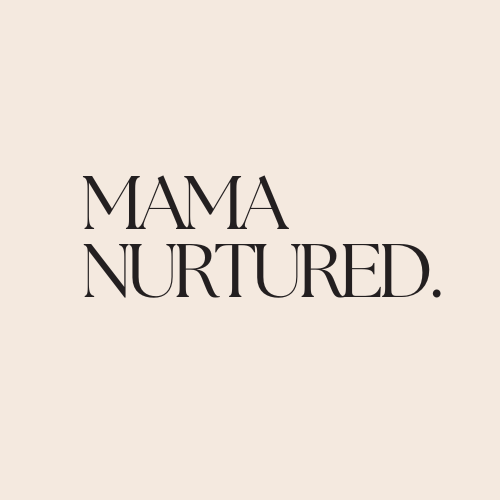The hidden reason you might find it hard to lose the baby weight
I want to start this journal post with a bit of a disclaimer: I don’t believe in the bounce back after baby culture, and I think a mother’s body should be truly celebrated for what it has remarkably achieved after carrying and birthing a baby. The stretch marks, the linea nigra (the pregnancy line on your belly) that often remains, the loose tummy skin, even the bags under your eyes - all reminders that we are mothers and our bodies need embracing postnatally.
A client (PTP) came to see me last week 17 years after birthing her first baby. Ever since then she has been uncomfortable with the weight she had gained after her son arrived. She was also lacking in energy, even though she no longer had babies who woke in the night. She had cold hands and feet, course, dry skin and was often lethargic in the afternoons.
What we discovered in her first postnatal treatment was astounding, her postnatal recovery was still affecting her to this day… it was all down to her thyroid.
The thyroid gland, located near the base of the front of the neck, makes hormones that raise or lower the metabolic rate, the rate at which your body makes energy from the foods you eat. Thyroid hormones also regulate how much oxygen the cells receive, so they increase mental alertness and have potent effects on mood and energy levels.
For as many as 10 percent of all postnatal women, thyroid imbalances are at the root of their emotional and physical complaint. Imbalanced thyroid levels can also make other hormonal imbalances more severe.
In some scenarios, in the second and third months postpartum, we see thyroid hormone overproduction (hyperthyroidism) which shows up as insomnia, high alertness, a tired but wired feeling, intolerance to heat and a rapid heart beat.
After this, the next seven to eight months are followed by low thyroid levels (hypothyroidism) - the damaged gland becomes unable to make enough hormone while it heals - which can lead to fatigue, depression, hair loss, dry skin, impaired memory and concentration, intolerance to cold, and weight gain.
These symptoms can easily be mistaken for psychologically based anxiety or depression.
Back to my client - after some gentle muscle testing, we discovered a thyroid imbalance. Healing thyroid dysfunction may be as simple as restocking the body’s stores of the mineral iodine. So I tested a supplement called ‘Kelp & Hops’ - Kelp is the name given to a whole variety of seaweed, and it is often called a “herb from the sea”. It is a wonderful source of iodine, an essential nutrient for healthy thyroid function.
My treatments go beyond just nutritional support though…
The thyroid gland is highly responsive to stress and negative emotions. Women who are depressed and stressed out for other reasons may trigger a thyroid imbalance. The thyroid gland represents an inability to speak your truth because it is somehow repressed or blocked.
During the postnatal treatment, we talked through emotions around speaking her truth, being able to express herself, and did some powerful emotional stress release work. Her issues with weight stemmed back to how someone in her life had made her feel after giving birth - often in my treatments, we find the negative voice is someone else’s and so we use techniques to transform those critical, intrusive voices into compassionate voices, reprogram our mindset, feeding the conscious mind with new positive affirmations, and in turn release the emotional stress.
Our postnatal body, the remarkable one that carried and brought life into this world, requires ongoing care and attention. Even years down the line (17 years in fact!), we can still undergo transformation and renewal. So, let this be a gentle reminder that it is never too late to nurture ourselves, to honour our postnatal body, and to embrace self-care as an integral part of our motherhood journey. Whether it has been 17 months or 17 years since we last gave birth, the opportunity to tend to our physical, emotional, and spiritual well-being remains ever-present.
If this post resonates with you and you’re intrigued about how a postnatal treatment might help you:



